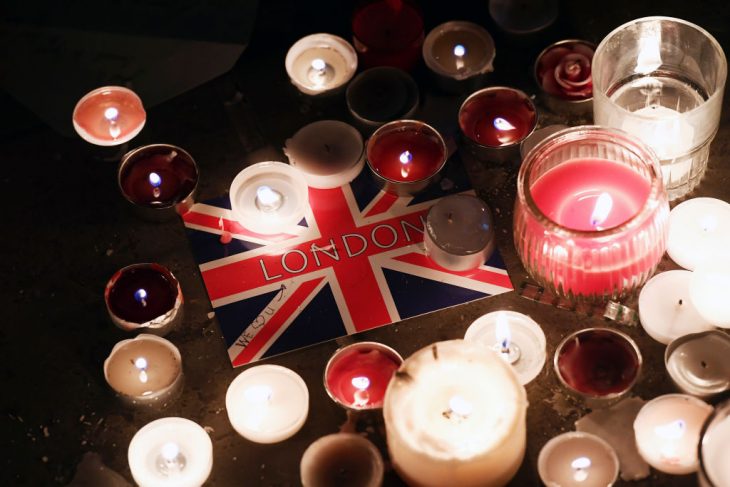Theresa May told MPs yesterday that Britain will not waver in the face of terrorism. She is widely praised for her emotional address in the Commons, in which she said simply: ‘We are not afraid’. But still the question lingers: what can we do to prevent a repeat of Wednesday’s attack?
Theresa May hit precisely the right note in her address to MPs, says the Daily Telegraph, which compares the Prime Minister’s response to that of Margaret Thatcher’s after the Brighton bombing in 1984. Yet while her message is an important one, there are ‘inevitable questions’. The Telegraph says that already we’re following the ‘gloomy familiar aftermath’ to an attack, as it becomes clear that the man responsible – Khalid Masood – was already well-known to police. ‘Should the police and MI5 have kept a closer eye on him?,’ the paper asks. Of course it’s easy to say so after the attack. Yet in a democracy, the Telegraph argues, ‘it is unfortunately true that absolute security is impossible when people are prepared to murder and maim even when they know they are almost certain to die in the process’. Some are now calling for all Westminster police officers to be armed. But ‘do we really want the seat of democracy to resemble a fortress?’. And what about routinely arming all police officers? This would be a mistake, says the Telegraph, which insists that terrorism must not ‘determine our policing policies’.
Theresa May’s speech was undoubtedly eloquent, says the Times. Yet while the Prime Minister is right to say that Britain’s resolve won’t waver, ‘resolve alone will not defeat this enemy’. It’s not merely weapons which the terrorists must be stripped off, the paper argues – their warped ‘ideology’, too, must be peeled away. The Times likens this task to the ‘scale of denazification in Germany after the Second World War’. But in the mean time, what can be done to prevent future attacks? Closely monitoring all 3,000 terror suspects isn’t an option, says the Times. But it’s not only financial constraints getting in the way; this measure is ‘impractical for another good reason’: ‘Britain is not a police state’. Of course, there are immediate changes that can be made; Carriage Gate, where the attacker entered the Parliamentary estate, must not be kept open as it was on Wednesday – even if it makes life difficult for MPs rushing in and out of Parliament. Ultimately though, to defeat terrorism, there’s a much bigger task at hand: we must ensure that ‘vulnerable Muslims’ are protected from radicalisation. If we don’t do this, argues the Times, ‘there will be more terrorist attacks and the hard right will reap the political benefit.’
It’s time for the security services to ask how Masood ‘slipped through their grasp’, says the Daily Mail. But even amidst these questions we must remember not to lose perspective. After all, the paper points out, ‘monitoring 3,000 or so homegrown terror suspects’, is a thankless task. And despite Wednesday’s horror, it’s a tribute to ‘the determined efforts of GCHQ and MI5’ that such an atrocity ‘didn’t happen sooner’, says the Mail. Instead, the Mail directs its ire at the web giants who, it says, do too little to deal with ‘vile Islamic State propaganda’ online. ‘Despite warnings from MPs that they are acting as the ‘lifeblood of IS’’, the Mail says that ‘they fail to take down poisonous material’. The paper says that already there are ‘manuals containing chilling parallels to Wednesday’s attack’, just a quick online search away. ‘One thing is certain’, the paper concludes: ‘this situation cannot be allowed to continue’.
It’s not ‘our spooks’ fault’ that Masood was off the radar, argues the Sun. ‘There are thousands’ of wannabe jihadists roaming the streets, the paper argues – and monitoring them all is simply impossible. It’s arguable that the new Investigatory Powers Act, which came into force last year, will make life easier for the security services. But the paper hits out at ‘Meddling EU judges’ who have said the law is illegal. And Liberty, who ‘claims it violates the Human Rights Act’, also come in for criticism. It’s obvious, says the Sun, that such ‘hand wringers’ ‘care less for the rights of those butchered by maniacs who slip through the net’. Of course, it’s right to have concerns about the state monitoring its citizens. In these times, however, it’s simply not an option to leave our security services ‘blind’, the paper concludes.







Comments